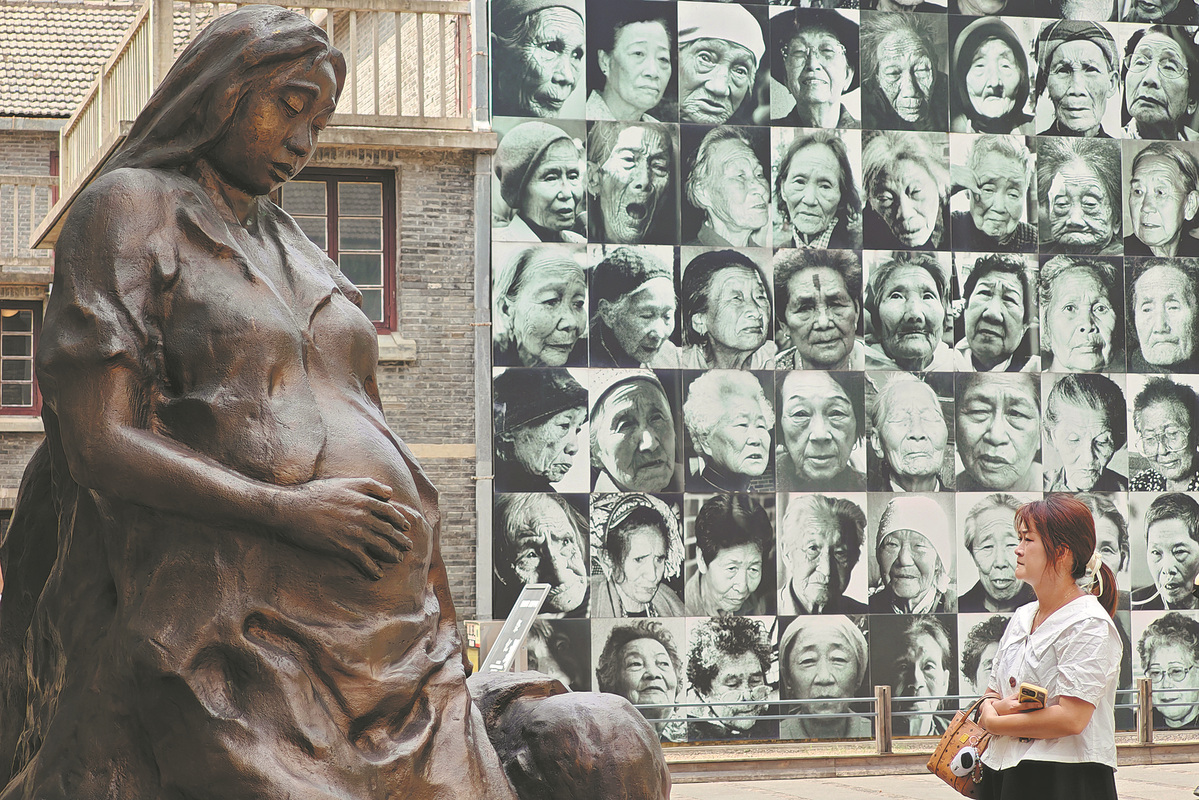Survey finds 418 Chinese 'comfort women' survived torment, WWII


A total of 418 Chinese victims survived Japan's "comfort women" system during World War II, according to a survey conducted over three decades by the Research Center for Chinese Comfort Women at Shanghai Normal University.
According to the survey's results unveiled on Tuesday, among these 418 "comfort women", 359 were from the Chinese mainland and 59 were from China's Taiwan region. South China's Hainan province accounted for 168 such women, the highest number, followed by North China's Shanxi province with 120.
As of now, seven "comfort women" are still alive on the mainland, with six living in Hunan province and one in Shanxi, according to the research center.
"Comfort women" was the Japanese imperial government's euphemism for those women and girls who were forced into sexual slavery at Japanese military brothels between 1932 and 1945, until the end of WWII. They were repeatedly raped and subjected to other forms of abuse and torture by Japanese soldiers. It is estimated that at least 400,000 women and girls were kidnapped, coerced or duped into sexual servitude by Japanese invaders around the world, with the number of Chinese victims exceeding 200,000.
Su Zhiliang, a professor and director of the research center, said he and his wife, Chen Lifei, started the survey in 1993 and they were joined by many researchers across China over the years. Su said it was not easy to confirm who among the thousands of these women survived the torment and the war, as it required concrete proof of every incident, such as recorded narration in first person and material evidence, as well as witness accounts.
Gathering such evidence meant forcing survivors or their kin to recall the traumatic past, and many of these people needed years to finally reveal their stories, he added.
"We found many of the survivors as early as 2000, but they were living in poor conditions, mostly in rural areas. Therefore, alongside the survey, we had to develop a system to care for these women and help improve their lives," Su said.
He emphasized that the survey was primarily meant to reveal historical truths that Japan has been trying to bury. "When the war ended, Japan destroyed vast archives (of evidence). We knew nothing about this part of history until the first victim broke her silence in 1991," he said.
On Aug 14, 1991, Kim Hak-sun, from the Republic of Korea, was the first "comfort woman" to testify against Japan's wartime crimes. To commemorate her courage, the international community designated Aug 14 as the International Memorial Day for Comfort Women in 2013.
Su noted that the horrifying stories of "comfort women" have been drawing more and more public attention in and outside China.
The Chinese documentary Twenty Two, named after the number of "comfort women" alive at the time of its filming in 2014, was one positive move toward raising public awareness about this group. Part of the documentary's box-office revenue was donated to aid the survivors.
Although the number of these women still alive is fast dwindling, dozens of statues and monuments have been set up across the world, including in China, the United States, Canada, Germany and Italy, to honor their courage, Su said. "We hope more people can focus on this group in the future, think about the history and cherish the peace."
wangxin2@chinadaily.com.cn


















